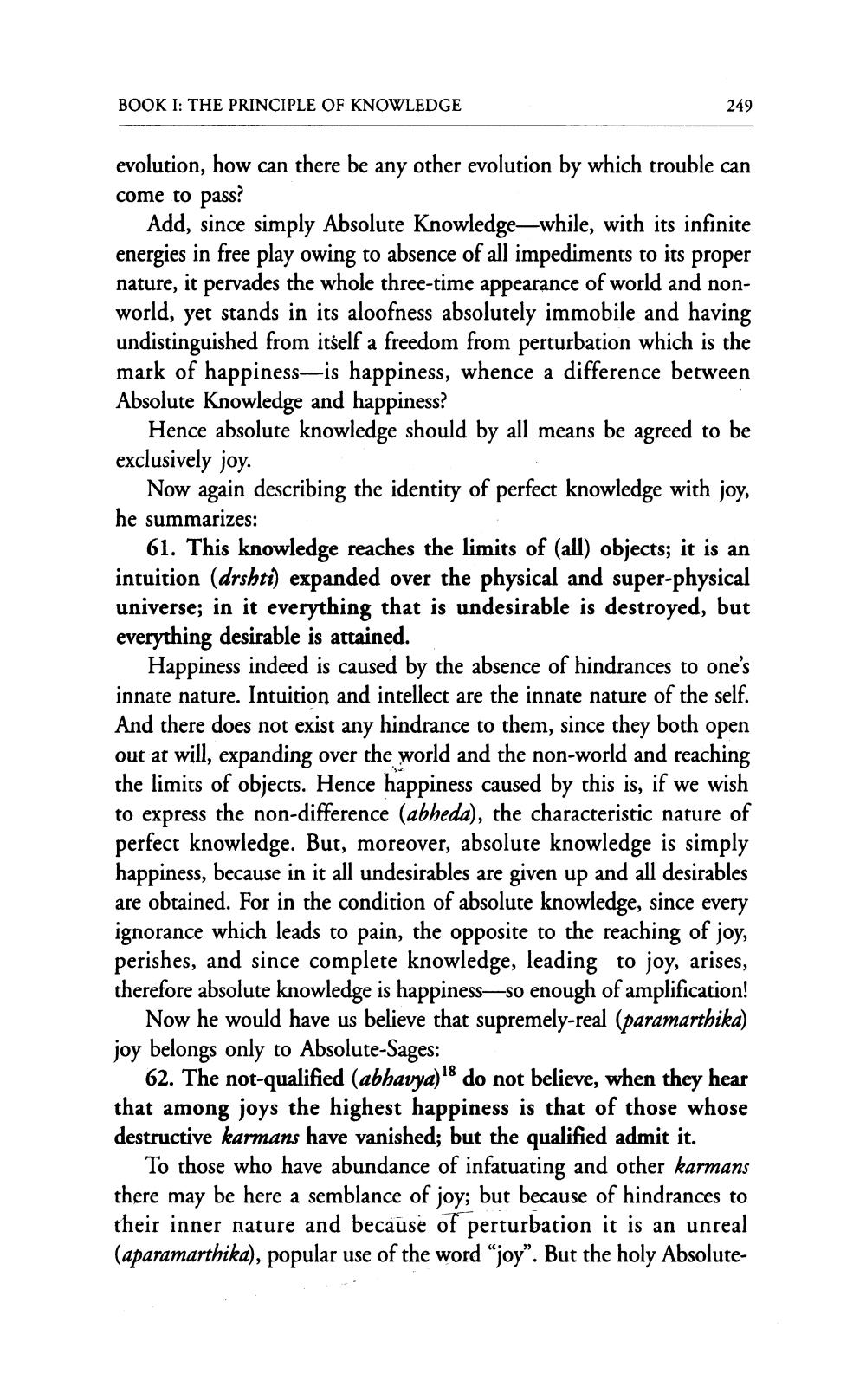________________
BOOK I: THE PRINCIPLE OF KNOWLEDGE
249
evolution, how can there be any other evolution by which trouble can come to pass?
Add, since simply Absolute Knowledge—while, with its infinite energies in free play owing to absence of all impediments to its proper nature, it pervades the whole three-time appearance of world and nonworld, yet stands in its aloofness absolutely immobile and having undistinguished from itself a freedom from perturbation which is the mark of happiness—is happiness, whence a difference between Absolute Knowledge and happiness?
Hence absolute knowledge should by all means be agreed to be exclusively joy.
Now again describing the identity of perfect knowledge with joy, he summarizes:
61. This knowledge reaches the limits of (all) objects; it is an intuition (drshti) expanded over the physical and super-physical universe; in it everything that is undesirable is destroyed, but everything desirable is attained.
Happiness indeed is caused by the absence of hindrances to one's innate nature. Intuition and intellect are the innate nature of the self. And there does not exist any hindrance to them, since they both open out at will, expanding over the world and the non-world and reaching the limits of objects. Hence happiness caused by this is, if we wish to express the non-difference (abheda), the characteristic nature of perfect knowledge. But, moreover, absolute knowledge is simply happiness, because in it all undesirables are given up and all desirables are obtained. For in the condition of absolute knowledge, since every ignorance which leads to pain, the opposite to the reaching of joy, perishes, and since complete knowledge, leading to joy, arises, therefore absolute knowledge is happiness—so enough of amplification!
Now he would have us believe that supremely-real (paramarthika) joy belongs only to Absolute-Sages:
62. The not-qualified (abhavya) 18 do not believe, when they hear that among joys the highest happiness is that of those whose destructive karmans have vanished; but the qualified admit it.
To those who have abundance of infatuating and other karmans there may be here a semblance of joy; but because of hindrances to their inner nature and because of perturbation it is an unreal (aparamarthika), popular use of the word “joy”. But the holy Absolute




